Cheat Sheet: National Commission for STs | Indian Polity for UPSC CSE PDF Download
Introduction
This chapter explains the National Commission for Scheduled Tribes (NCST), a constitutional body established under Article 338-A to protect and promote the welfare of Scheduled Tribes (STs). It covers the NCST’s evolution, composition, functions, powers, and reporting mechanisms, highlighting its role in addressing the unique needs of STs and ensuring their constitutional safeguards.
Evolution of the National Commission for Scheduled Tribes
The NCST was created to focus on the distinct needs of Scheduled Tribes, evolving from a combined commission with Scheduled Castes to a separate constitutional body.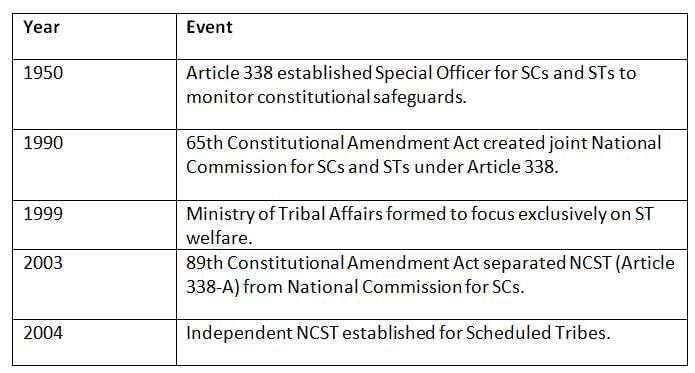 Key Points: The NCST’s formation in 2004 reflects a targeted approach to ST welfare, driven by their distinct socio-economic and cultural needs.
Key Points: The NCST’s formation in 2004 reflects a targeted approach to ST welfare, driven by their distinct socio-economic and cultural needs.
Composition of the National Commission for Scheduled Tribes
The NCST is a multi-member body appointed by the President, designed to ensure effective oversight of ST welfare with defined terms.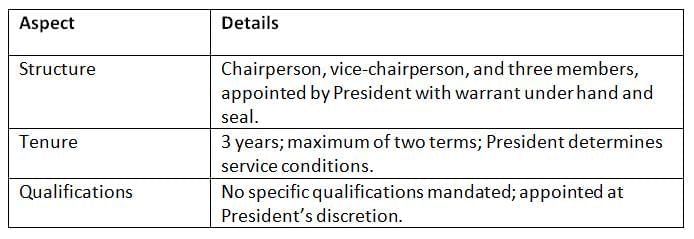
Key Points: The NCST’s composition ensures dedicated leadership for ST welfare, with limited tenure to maintain focus and accountability.
Functions of the National Commission for Scheduled Tribes
The NCST monitors ST safeguards, investigates grievances, and promotes their socio-economic development through targeted recommendations.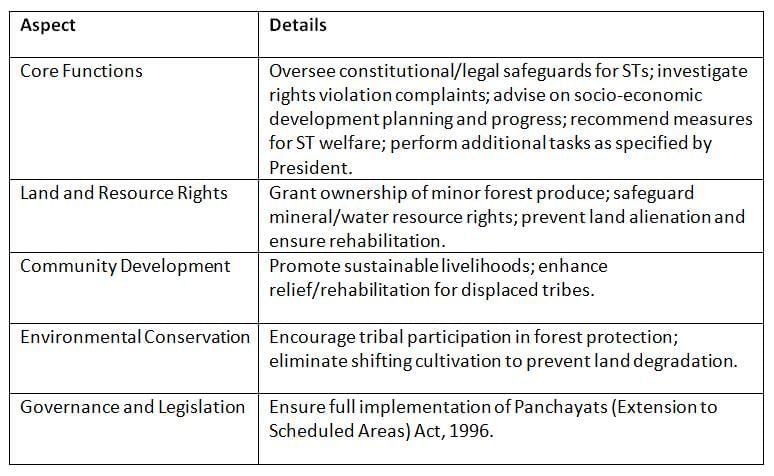
Key Points: The NCST’s functions focus on protecting ST rights, promoting sustainable development, and ensuring effective governance in tribal areas.
Powers of the National Commission for Scheduled Tribes
The NCST has civil court-like powers to investigate issues effectively and is consulted on major ST-related policies.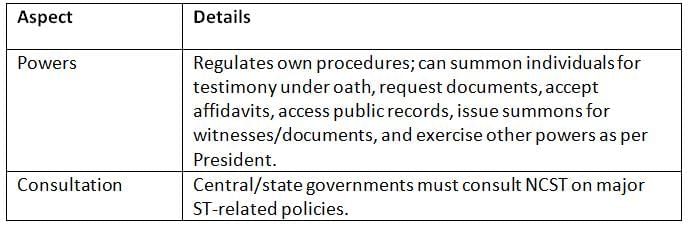
Key Points: The NCST’s civil court powers and mandatory consultation ensure robust authority to protect ST interests and influence policy.
Reporting Mechanism
The NCST submits reports to the President, ensuring transparency and accountability through parliamentary and state-level review.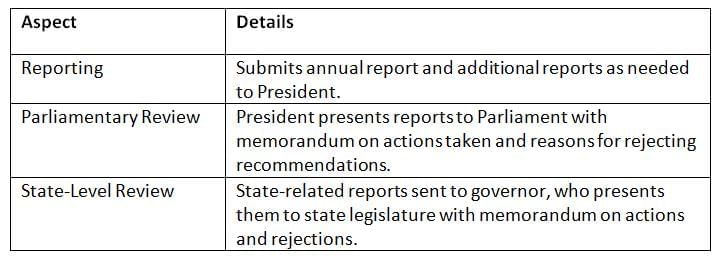
Key Points: The NCST’s reporting ensures its recommendations are scrutinized at central and state levels, promoting accountability in ST welfare.
Chronology for Quick Revision
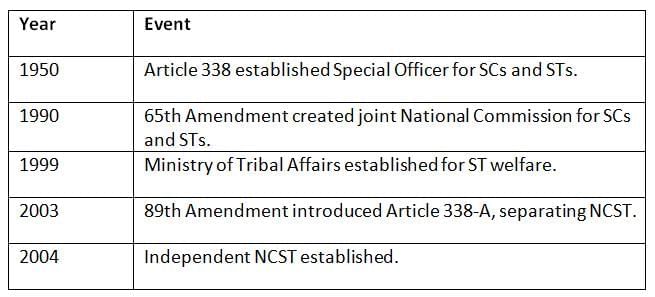
Conclusion
This chapter underscores the National Commission for Scheduled Tribes as a vital constitutional body under Article 338-A, dedicated to safeguarding and advancing the welfare of Scheduled Tribes. Evolving from a joint commission with SCs, the NCST addresses ST-specific needs through monitoring, investigations, and socio-economic development advice. With civil court-like powers and mandatory consultation, it ensures robust protection of ST rights. Its reporting mechanism fosters transparency, making the NCST essential for inclusive development and tribal empowerment in India.
|
154 videos|998 docs|260 tests
|
FAQs on Cheat Sheet: National Commission for STs - Indian Polity for UPSC CSE
| 1. What is the purpose of the National Commission for Scheduled Tribes? |  |
| 2. How is the National Commission for Scheduled Tribes composed? |  |
| 3. What are the main functions of the National Commission for Scheduled Tribes? |  |
| 4. What powers does the National Commission for Scheduled Tribes hold? |  |
| 5. How does the reporting mechanism of the National Commission for Scheduled Tribes work? |  |















